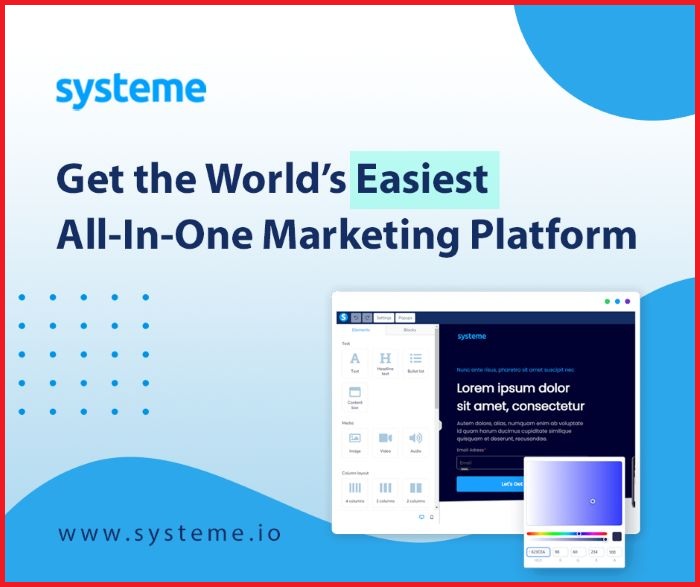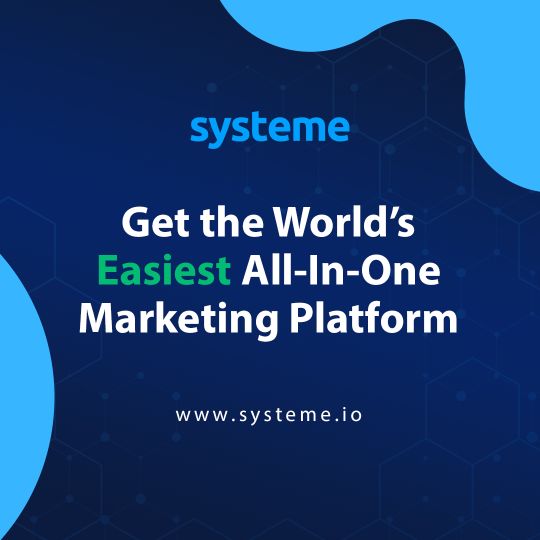Pay-per-click (PPC) consultants play a crucial role in the digital advertising landscape. They help businesses maximize return on investment (ROI) through expertly designed and managed PPC campaigns. A PPC consultant is your guide in navigating platforms, crafting strategies, and optimizing ad performance to reach the right audience.

Navigating PPC can be complex and requires a clear strategy. Consultants provide expertise to ensure your campaigns are not just meeting industry standards but also delivering tangible results.
An effective PPC campaign can boost visibility and create meaningful customer engagement.
Consultants also focus on analytics to refine and enhance campaigns over time. By understanding the metrics, they can adjust strategies to improve outcomes and increase the effectiveness of your advertising efforts.
Key Takeaways
- PPC consultants boost ROI with expert strategies.
- They use analytics to optimize campaign performance.
- Effective PPC enhances visibility and engagement.
Understanding PPC and Its Importance
Pay-per-click (PPC) advertising is a powerful tool in digital marketing. It allows advertisers to pay only when someone clicks on an ad, making it cost-effective. This approach enhances brand awareness and delivers measurable results in terms of return on investment (ROI).
Basics of PPC Advertising
PPC advertising involves placing ads on platforms like Google, Facebook, and Instagram. Advertisers bid on keywords related to their products or services. When users search for these keywords, ads appear at the top of search results or within social media feeds.
Each click incurs a fee, making precise targeting crucial. The ability to set budgets and adjust campaigns in real time provides flexibility.
It’s important to choose effective keywords and craft engaging ad copy to attract clicks and ultimately drive traffic to your site.
Significance of PPC in Digital Marketing
PPC plays a vital role in digital marketing strategies. Its immediate impact on traffic and visibility is unmatched. Unlike traditional advertising that pays per impression, PPC ensures you pay only when users engage by clicking.
This precise targeting helps maximize your marketing budget. Moreover, PPC complements search engine optimization (SEO) by bolstering your online presence.
It allows you to quickly gain insights into customer behavior, which aids in refining other marketing strategies. PPC also benefits businesses by increasing brand awareness and reaching diverse audiences.
ROI and Pay-Per-Click
Measuring the success of PPC campaigns involves analyzing ROI. PPC’s structured setup facilitates easy tracking of how much revenue each click generates.
By comparing the cost of clicks to the revenue brought in, you can assess the campaign’s effectiveness. Key performance indicators (KPIs) to monitor include cost per click (CPC), conversion rates, and revenue per click.
With accurate data, you can adjust bidding strategies and optimize ads to improve ROI. This detailed insight and adaptability make PPC a preferred choice for businesses seeking efficient marketing solutions.
Crafting Effective PPC Strategies
Crafting effective PPC strategies involves careful planning and execution to optimize results. You need to focus on thorough keyword research, precise audience targeting, and continual campaign optimization to maximize your return on investment.
Keyword Research and Selection
Keyword research lays the foundation for your PPC strategy. Start by identifying relevant terms that your target audience is likely to use. A mix of short-tail and long-tail keywords helps you reach both broad and specific audiences.
Consider using tools like Google Keyword Planner for insights. Select keywords based on search volume, competition, and cost. Negative keywords are also crucial as they prevent your ads from appearing for irrelevant searches, saving money and increasing relevance.
Regularly updating your keyword list ensures alignment with market trends and search behaviors. You can improve ad performance and customer engagement with the right keyword strategy.
Audience Targeting and Retargeting
Effective audience targeting is vital for reaching the right customers. Use demographic data to segment audiences based on age, gender, location, and interests.
Platforms like Facebook and Google Ads offer robust tools for precise targeting.
Retargeting is another important tactic. It focuses on users who have interacted with your site but not converted. Retargeting ads serve as reminders, encouraging them to return and complete a purchase.
This approach is cost-efficient since the users already displayed interest.
Tailor your messages to the audience’s needs and preferences, enhancing the likelihood of engagement and conversion. By refining both targeted and retargeting efforts, you increase the impact of your PPC campaigns.
Optimizing PPC Campaigns for Maximum ROI
Continuous optimization is key to maximizing ROI in PPC campaigns. Monitor key performance metrics such as click-through rate (CTR), conversion rate, and cost per conversion.
Adjust bids and budgets based on these metrics to ensure efficient spending.
A/B testing is a valuable tool for deciding which ads perform better. Test different headlines, images, and call-to-action phrases to find the most effective combinations. Regularly reviewing ad copy and landing pages can also enhance performance.
Leverage automated bidding strategies for better results. These features use machine learning to adjust bids in real-time, driving higher conversions.
By staying proactive in your optimization efforts, you ensure better returns on ad spend and achieve your marketing goals.
Role of PPC Consultants
PPC consultants are crucial to online advertising campaigns. They optimize ad spending, improve click-through rates, and enhance online visibility. Understanding the distinctions between different PPC roles and what consulting services offer can help you achieve better results.
PPC Expert vs. PPC Specialist
As a PPC consultant, you may be tasked with both strategy and execution. PPC experts typically focus on planning, analyzing market trends, and creating overarching strategies. They have a broad knowledge of platforms like Google Ads and Bing.
PPC specialists, on the other hand, concentrate more on day-to-day operations. They manage campaigns, adjust bid strategies, and track performance metrics.
You may work with both, but knowing their specific roles improves campaign efficiency and client satisfaction.
What to Expect from PPC Consulting Services
PPC consulting services often include comprehensive audits of existing campaigns. You will receive insights on ad performance, keyword effectiveness, and areas for improvement. This analysis helps in reallocating budgets for higher returns.
Consultants also craft customized strategies tailored to your business needs. They may suggest changes in ad copy or targeting to boost engagement.
Expect regular updates showcasing progress and future actions to ensure transparency and alignment with your goals.
Communication and Project Management
Effective communication is vital in PPC consulting. You should expect regular meetings to discuss campaign status and any changes in objectives. This helps in making timely adjustments and keeping goals aligned.
Project management involves detailed planning and execution. Using tools like project management software ensures tasks are tracked and deadlines are met.
Clear channels should be established for feedback, facilitating smooth collaboration and enhancing client satisfaction.
Adapting your approach based on ongoing feedback is key to success. By maintaining open communication, you’re more likely to ensure campaigns are on track and delivering desired outcomes.
Advanced PPC Techniques
Advanced PPC techniques can significantly enhance your campaign performance. By focusing on optimizing conversion rates, smart remarketing strategies, and effective budget management, you can improve your PPC results.
Conversion Rate Optimization (CRO)
Improving your conversion rates is essential for PPC success. CRO involves optimizing landing pages to ensure they are engaging and user-friendly.
Create clear calls-to-action that guide visitors toward a desired outcome. Use A/B testing to determine which designs or messages perform best.
Analyzing user behavior and making data-driven changes can also help boost conversions.
Tracking metrics like bounce rate and time spent on the page can help identify areas for improvement. By continuously refining your approach, you can make your PPC campaigns more efficient and effective.
Leveraging the Power of Remarketing
Remarketing is a powerful tool to target previous visitors. It allows you to show ads to users who have already interacted with your site, increasing the chance of conversions.
Segment your audience based on their actions, such as viewed products or abandoned carts. Tailor your messages to resonate with each segment, encouraging them to return and complete their purchase.
Use platforms like Google Ads to set up remarketing lists, and ensure you are using engaging ad visuals and copy.
This technique helps you maintain brand visibility and re-engage potential customers.
Bidding Strategies and Budget Allocation
Effective bid management and budget allocation are crucial for maximizing the return on your PPC investments.
Employ automated bidding strategies like Target CPA or Enhanced CPC to adjust bids based on performance.
Determine which keywords are delivering the best results and focus your budget on these to maximize conversion rates.
Monitor your spend regularly to ensure you are not overspending on low-performing keywords.
Balance your budget across different campaigns and ad groups to achieve your overall marketing goals.
This strategic approach helps you maintain control over your spending and ensure your resources are utilized efficiently.
Performance Metrics and Analytics
Pay-per-click (PPC) consultants rely heavily on data to ensure campaign success. You need to focus on key metrics to understand ad performance and make informed decisions. These metrics help identify areas where your campaigns excel and where they need improvement.
Measuring PPC Campaign Success
To measure the success of a PPC campaign, start by examining key metrics like click-through rates (CTR), conversion rates, and cost per click (CPC).
A high CTR indicates that your ads are engaging and relevant to users. Conversion rates tell you how many clicks lead to desired actions, like purchases or sign-ups.
Cost per conversion provides insight into how much you’re spending to achieve these goals. Lower costs with higher conversions suggest a successful campaign.
Regular analysis of these metrics helps you adjust strategies to maximize returns. Tracking these performance indicators ensures you’re on the right path to achieving your business objectives.
Key Performance Indicators (KPIs)
In PPC campaigns, key performance indicators (KPIs) are essential for evaluating effectiveness. Common KPIs include CTR, conversion rate, and quality score. Each KPI provides a different angle of campaign performance, helping you make necessary adjustments.
CTR measures the percentage of people who click on your ad after seeing it. High CTR often leads to better ad positioning and can lower costs.
Conversion rate reflects the percentage of clicks that result in a desired action. Quality score, provided by platforms like Google Ads, assesses ad relevance and user experience.
Monitoring these KPIs helps maintain a competitive edge and optimize campaign expenditure.
Understanding Quality Score
Quality Score is crucial in determining ad success. It is an indicator used by platforms such as Google Ads to evaluate the quality and relevance of your ads, keywords, and landing pages.
A higher quality score can lead to lower cost-per-click (CPC) and better ad placements.
Several factors affect this score, including CTR, keyword relevance, and landing page experience.
By improving these factors and ensuring they align with user expectations, you can achieve a better quality score.
This improved score not only reduces costs but also enhances ad visibility, allowing your campaign to reach more potential customers efficiently.
Platforms for PPC Campaigns
When crafting your PPC campaigns, choosing the right platform is essential for your advertising success. Each platform offers unique tools and reach, so understanding their strengths can help you maximize your advertising efforts.
Google Ads and Search Engine Advertising
Google Ads stands as a cornerstone in search engine advertising, leveraging Google’s massive reach. With this platform, you can target users by location, keywords, and demographics.
Google Search Ads ensure your advertisements appear at the exact moment users are searching for relevant information. This intent-driven advertising makes it possible to connect with potential customers who are actively seeking products or services similar to yours.
Key Features:
- Keyword targeting
- Ad extensions like call or location
- Performance tracking
By utilizing these features, you can adjust bids and strategies for optimizing campaign performance based on data-driven insights.
Social Media Advertising: Facebook and YouTube Ads
Social media platforms like Facebook and YouTube offer distinct PPC options. Facebook Ads allow you to target audiences based on interests, behaviors, and demographics, providing a way to engage users in a more personal setting.
Video ads on YouTube capture attention through engaging content, benefiting from Google’s targeting technology.
Benefits:
- Detailed user targeting options
- High engagement through multimedia content
- Vast audience reach
These options not only expand your reach but also improve brand visibility through engaging formats, helping your message resonate with users who spend significant time on social media.
Amazon Ads and E-Commerce
For businesses focused on e-commerce, Amazon Ads is a powerful tool. It offers various ad formats such as Sponsored Products and Sponsored Brands. These are designed to promote products at crucial moments in the shopping journey. Amazon serves as both a search engine and an online marketplace. Because of this, it provides a unique context for PPC campaigns.
Advantages:
- Direct targeting of purchase-ready consumers
- Insightful conversion metrics
- Integration with product listings
Focusing your advertising efforts on Amazon can help you more effectively capture consumers during their purchase decision-making process.
Exploring Bing Ads and Other Networks
Bing Ads provides an alternative to Google, reaching a different segment of search engine users. It often has lower competition and cost per click, making it a valuable part of your PPC strategy. Additionally, it allows for seamless integration with campaigns already running on Google Ads. Its geo-targeting capabilities also help refine audience reach.
Considerations:
- Lower competition and costs
- Different user base demographics
- Easy synchronization with Google campaigns
Adding Bing Ads and other networks into your strategy can diversify your reach. This will help you tap into unexploited market segments and potentially drive more cost-effective conversions.
The Synergy of SEO and PPC
When combined, SEO and PPC can enhance your digital strategy by driving more traffic and increasing conversions. Both methods can support each other by using unique strengths to amplify results, maximizing your return on investment.
Incorporating SEO Best Practices
To get the most from your efforts, incorporate SEO best practices into your PPC campaigns. Both strategies rely on keyword optimization. Ensure that your PPC ads target high-converting keywords that align with your SEO goals.
Creating high-quality landing pages also boosts performance. These pages should be optimized with relevant SEO keywords and offer a seamless user experience. This consistency can help increase engagement, which, in turn, boosts your campaign’s effectiveness.
Integrate analytics tools to monitor your results. By analyzing data from both SEO and PPC, you can make informed adjustments to your digital strategy. Look for patterns and areas where both methods are generating results. Then, use these insights to refine and synergize your marketing efforts.
SEO vs. PPC: Complementary Strategies
Although SEO and PPC are distinct, they can effectively complement one another. SEO focuses on organic traffic, which takes time to establish but offers long-term benefits. PPC advertising, on the other hand, provides immediate visibility through paid search results. By combining both, you can cover both short-term and long-term goals.
Use PPC to test what keywords are converting best. This fast feedback loop informs your SEO strategy. It guides you to create content optimized for keywords proven successful in PPC. Over time, this strategic use of insights can strengthen your overall strategy.
Consider the brand’s online presence. With PPC, you can gain quick exposure, while successful SEO builds authority. Together, they increase your brand’s visibility and credibility, attracting more high-quality leads. This is why a balanced approach is often most effective.
Enhancing Client Engagement with PPC
Using pay-per-click (PPC) strategies can improve how clients interact with your brand. This section covers ways to enhance client engagement through PPC by focusing on brand awareness, targeted lead generation, and boosting website traffic. These strategies can lead to more effective communication and personalized service for your clients.
Building Brand Awareness
PPC campaigns can help raise brand awareness by putting your ads in front of the right audience. By selecting the right platforms and keywords, you can ensure that potential clients see your brand where they spend time most online. Eye-catching ad designs and messages that highlight your unique selling points are key.
It’s important to use consistent messaging across your ads to reinforce brand identity. This creates familiarity, making your brand more recognizable. Use metrics like impressions and reach to gauge the effectiveness of your brand awareness efforts.
Keep your message clear and concise, and adapt your strategy based on performance data to maximize visibility and engagement. Regular updates and A/B testing can help sharpen your approach.
Lead Generation through Targeted Ads
PPC is a powerful tool for lead generation. By using data-driven insights, you can create targeted ads that reach users more likely to be interested in your services.
Focus on the right keywords and demographics to hone your audience and improve ad relevance. You can also leverage tools like remarketing and tailored ad copy to address specific customer needs. This allows for more personalized service, increasing the chances of converting a visit into a lead.
Using clear calls-to-action (CTAs) in your ads is essential to guide potential clients towards taking steps such as signing up or contacting you.
Continuous monitoring of lead quality and cost per conversion is crucial. Make adjustments as needed to keep campaigns aligned with your goals.
Boosting Website Traffic and Engagement
Directing more traffic to your website through PPC can significantly boost client engagement. Use engaging ad copy and compelling visuals to entice users to click through to your site.
Once they land, ensure your website content is optimized for user experience. Optimize landing pages for both desktop and mobile users. Fast loading times, intuitive navigation, and relevant content are crucial for retaining visitors and encouraging them to explore your site.
Analyze user behavior data to understand how visitors interact with your site. This information can inform future ad strategies, making your campaigns even more effective at driving engagement.
Future Trends in PPC
As the landscape of Pay-Per-Click (PPC) advertising evolves, several trends are shaping how businesses approach digital marketing. These include technological advancements, improved audience targeting techniques, and increased automation.
Emerging Digital Advertising Technologies
Digital advertising is constantly evolving, with new technologies reshaping how ads are delivered. Augmented Reality (AR) is becoming a part of PPC campaigns, enhancing user engagement by allowing consumers to interact with ads in 3D. This offers a more immersive experience, potentially increasing conversion rates.
Another technology impacting PPC is Generative AI. It can create personalized ad content at scale, helping you better connect with diverse audiences.
5G technology is facilitating richer media experiences in ads. Faster internet speeds mean you can feature high-quality video and interactive content in your campaigns, broadening engagement possibilities. Monitoring these technological developments is crucial for staying competitive in digital advertising.
Innovations in Audience Targeting
Audience targeting is becoming more precise with first-party data taking center stage. With privacy rules limiting third-party data usage, building direct relationships with your audience becomes vital.
Collecting and analyzing data from your platforms allows you to create targeted ads that resonate with your customers.
Another innovation is the use of Lookalike Audiences. These help you reach new potential customers by targeting users similar to your existing customer base. This strategy expands your audience while maintaining relevance. Additionally, demographic and behavior-based segmentation ensures your ads reach the most interested users, maximizing the effectiveness of your PPC management efforts.
AI and Automation in PPC Management
Artificial Intelligence (AI) and automation are revolutionizing PPC management by streamlining processes and improving accuracy. AI algorithms are used to optimize bidding strategies, ensuring you achieve the best possible cost-per-click and return on investment.
Automation tools handle repetitive tasks, allowing you to focus on strategy and creativity.
Machine Learning assists in predicting consumer behavior, enabling dynamic ad adjustments based on real-time data. This ensures that your ads remain relevant and effective.
Embracing AI and automation in your PPC campaigns helps in making informed decisions based on data-driven insights, enhancing overall outcomes.
Frequently Asked Questions
Understanding the role of a PPC specialist and how to work with one is crucial. You’ll find insights on responsibilities, selecting and compensating consultants, and the advantages of hiring freelancers. Additionally, see what it takes to excel in this field yourself.
What are the typical responsibilities of a pay-per-click specialist?
A pay-per-click (PPC) specialist manages online advertising campaigns. They research keywords, design ads, and track performance metrics. Their role also includes analyzing data to optimize ad spending and improving campaign effectiveness. This helps businesses achieve targeted marketing goals efficiently.
How do you determine a competitive salary for a PPC specialist?
Salary for a PPC specialist depends on experience, skills, and location. Typically, market research and industry benchmarks provide guidance.
You can explore resources like job boards and salary surveys to find competitive pay rates in your region.
What criteria should I use to select a reliable PPC consultant?
When selecting a PPC consultant, evaluate their experience, industry knowledge, and client testimonials. It’s also important to assess their familiarity with various ad platforms and their success with past campaigns.
Clear communication and a strategic approach are essential qualities.
How do you calculate a cost-effective pay-per-click rate for advertising?
Calculating a cost-effective PPC rate involves setting a budget, identifying target metrics like cost per click (CPC), and evaluating return on investment (ROI). You should track performance over time and adjust strategies based on campaign data. This ensures your advertising spend aligns with business objectives.
What are the benefits of hiring a freelance PPC manager?
Hiring a freelance PPC manager offers flexibility and often cost savings compared to full-time staff. Freelancers can bring diverse experiences from various industries. They typically offer customized solutions tailored to your specific needs and can be a scalable option as your business grows.
What steps should be taken to become a successful PPC manager?
To become a successful PPC manager, you should focus on gaining expertise in different ad platforms and staying updated with industry trends. Developing strong analytical skills and honing your ability to interpret data is crucial. Building a strong portfolio and getting professional certifications can also enhance your credibility.





